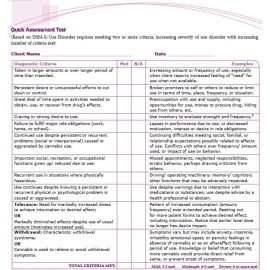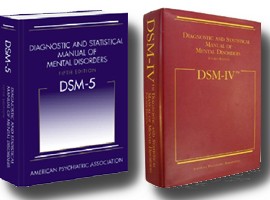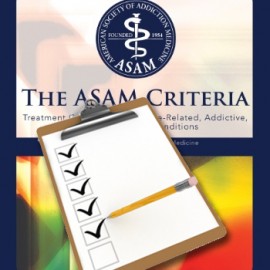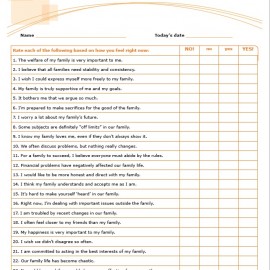Topic: assessment
Diagnosing Cannabis Use Disorder: Updated
It certainly makes sense that if you suffer from a major mental illness, you should stay away from pot.
Topics: assessment, cannabis, diagnosis
Three Challenges
Like a stroke patient who suddenly finds himself needing to relearn basic skills that were once automatic, it may require a level of personal commitment unseen for many years.
Topics: assessment, client engagement and motivation, counseling skills, outpatient treatment, relapse
Risky Decision Case Study: Quarterback Derby
To a seasoned counselor, there’s another way to view it. For one thing, these aren’t isolated incidents.
Topics: assessment, celebrity, decision making, risk factors
Outpatient Follies
The experience of addicts and alcoholics, particularly at the lower end of the socioeconomic scale, makes it clear that we could use more inpatient resources, not fewer.
Topics: ASAM, assessment, compliance and noncompliance, outpatient treatment, types of treatment
DSM-5 versus DSM-IV
Craving has finally been added to the symptom list. I was never entirely clear on why it wasn’t included in DSM-IV, since there’s an impressive body of research on craving measurement.
Topics: assessment, craving, diagnosis, signs and symptoms
Memory by Function
The personal story that recovering folks tell at 12 Step meetings is a reconstruction of episodic memories.
Topics: addiction and the brain, assessment, counseling
A Simple Test
Really resistant clients are already planning to continue using alcohol or drugs throughout treatment, possibly in secret.
Topics: assessment, client engagement and motivation, counseling skills, resistance manipulation ambivalence
Outpatient vs. Intensive Outpatient
The principle behind most ASAM-based systems is to treat clients at the “least restrictive” level at which they can benefit.
Topics: ASAM, assessment, diagnosis, types of treatment, utilization review
Family Inventory: Priorities and Values
By the time a client lands in treatment, it may be hard to tell whether their family relationships offer a potential asset or a problem set to address.
Topics: assessment, communication, family involvement, therapies and tools, treatment planning
Intervention at the ER, Part 2
It isn’t that big a challenge; you simply add a basic questionnaire on the subject to your intake paperwork.
Topics: alcoholism, assessment, consequences, health care, intervention, physicians, SBIRT, signs and symptoms


















